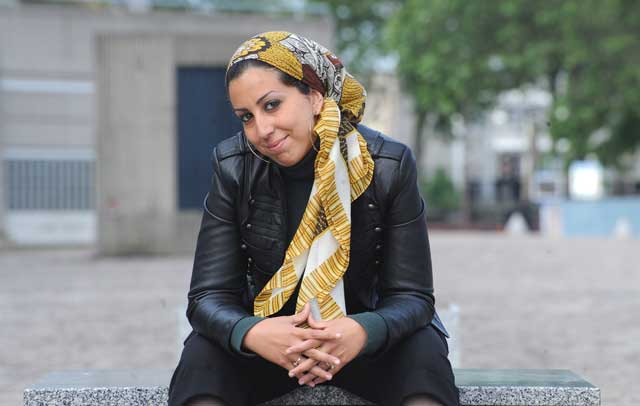Bar Balto, By Faïza Guène, trans. Sarah Ardizzone

Your support helps us to tell the story
From reproductive rights to climate change to Big Tech, The Independent is on the ground when the story is developing. Whether it's investigating the financials of Elon Musk's pro-Trump PAC or producing our latest documentary, 'The A Word', which shines a light on the American women fighting for reproductive rights, we know how important it is to parse out the facts from the messaging.
At such a critical moment in US history, we need reporters on the ground. Your donation allows us to keep sending journalists to speak to both sides of the story.
The Independent is trusted by Americans across the entire political spectrum. And unlike many other quality news outlets, we choose not to lock Americans out of our reporting and analysis with paywalls. We believe quality journalism should be available to everyone, paid for by those who can afford it.
Your support makes all the difference.One frequently-used metaphor for translation describes it as a sophisticated kind of ventriloquism – fooling you into thinking you're hearing one person's voice, while it's the voice of some invisible other. For a superlative example of translator-as-ventriloquist, discover Sarah Ardizzone and her work on the young French writer Faïza Guène. In this, their third collaboration, Ardizzone isn't merely performing the usual translator's trick of standing in the shadows and rendering an English-language voice – she's throwing 11 voices at once.
Over three books, Guène has become unofficial spokesperson to a class of banlieue youth. Bar Balto's characters live in Making-Ends-Meet, a town not quite Paris but not far outside, a place of general grey hopelessness, of long-term unemployment for many and long-term drudgery for the lucky few.
The local bar, Balto, is run by Joël (aka The Rink, because his head's so bald you could skate on it), who is found dead when the book opens. Death has not curbed his loquaciousness, however (or his toxic prejudices, or his libido). He is, posthumously, one of the book's 11 narrators. They include seven other locals who may or may not be responsible for his murder. All could have done it: Joël was not loved. So an outside investigator is brought in to assemble a picture of what happened, and the characters tell him their story. The half-Armenian teen drop-out, his America-loving blonde girlfriend, the Muslim twins: each takes a turn.
As they speak, each resident of Making-Ends-Meet bristles with life (including Joël, who's dead) with wit, with despair at their grim world. They are victims of racism, or racists themselves; they blame one another for the limitations on their lives, resent the demands of their spouses, parents, siblings, children.
With so many narrators we see every relationship twice over, from both sides, making us more forgiving of every character than those surrounding them will ever be. We see a failed marriage (his side, her side), a mother with her sons (her story, their stories), a young couple breaking up (the lies she tells, the lies he believes). And all of these voices are woven into a plot in which – though billed as a "whodunnit" – the question of who will ultimately be revealed as Joël's murderer is relatively insignificant. It's the sharp and sometimes very funny portrait of a society that has failed, and its people, that will stay with you.
Conventional wisdom dictates that any translated book hoping to find a decent readership should disguise its translated-ness, lest it frighten off those poor delicate souls averse to anything alarmingly foreign. But at the risk of doing Bar Balto a commercial disservice, its triumph is to the translator's account every bit as much as the author's. This is a virtuosic work of literary ventriloquism, each voice brilliantly paced, heavily idiomatic and utterly distinctive. Even if the original were barely half as good as it is, this Bar Balto would still be a thrilling read for the translator's performance alone.
Daniel Hahn is joint interim director of the British Centre for Literary Translation, Norwich
Join our commenting forum
Join thought-provoking conversations, follow other Independent readers and see their replies
Comments